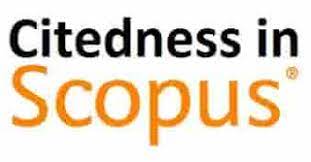Implementasi Contextual Teaching and Learning Pada Pembelajaran Aswaja
DOI:
https://doi.org/10.59373/attadzkir.v1i1.7Keywords:
CTL, Aswaja Learning, Learning ImplementationAbstract
This article aims to describe the implementation of the Contextual Teaching and Learning (CTL) approach in class VIII Aswaja learning at MTs Miftahul Huda Semanding Tuban. This article uses a case study approach, and is a type of qualitative research. Methods of data collection using interviews, observation, and documentation. Data analysis used the Mathew Miles and A Michael Hubermen model, namely data reduction in presenting data and drawing conclusions (verification). The results of the research from the implementation of CTL in Aswaja Subjects are quite good starting from the preparation of lesson plans, implementation which includes a) learning according to the reasonableness of students' mental development b) forming study groups c) providing an environment that supports independent learning d) considering the diversity of students e) paying attention to multi-intelligence students f) using questioning techniques and g) applying authentic assessment, and the obstacles in this approach 1) The proportionality of educational linearity is not appropriate 2) lack of teaching hours, lack of Aswaja teachers 3) developing learning media namely IT (electronic) media 4 ) The Covid-19 pandemic and 5) the public's view of the administrators working at Muhammadiyah while the impact of the CTL approach 1) high student enthusiasm 2) students can think critically 3) providing adequate learning media.
Downloads
References
Aliyyah, R. R., Ayuntina, D. R., Herawati, E. S. B., Suhardi, M., & Ismail. (2020). Using of Contextual Teaching and Learning Models to Improve Students Natural Science Learning Outcomes. Indonesian Journal of Applied Research (IJAR), 1(2), 65–79. https://doi.org/10.30997/ijar.v1i2.50
Fitri, A., Saparahayuningsih, S., & Agustriana, N. (2017). Perencanaan Pembelajaran Kurikulum 2013 Pendidikan Anak Usia Dini. Jurnal Ilmiah Potensia, 2(1), 1–13. https://doi.org/10.33369/jip.2.1.1-13
Ghofir, J. (2012). Biografi singkat ulama ahlussunnah wal jama’ah: Pendiri dan penggerak NU. GP Ansor Tuban.
Haidir, H., Arizki, M., & Fariz, M. (2021). An Innovation of Islamic Religious Education in The Era of The Industrial Revolution 4.0 in Elementary School. Nazhruna: Jurnal Pendidikan Islam, 4(3), 720–734. https://doi.org/10.31538/nzh.v4i3.1688
Kango, U., Kartiko, A., & Zamawi, B. (2021). The Effect of Service Quality, Facilities and Promotion on The Interest of New Students. Nidhomul Haq : Jurnal Manajemen Pendidikan Islam, 6(2), 323–330. https://doi.org/10.31538/ndh.v6i2.1447
Kartiko, A., Zuana, M. M. M., Sirojuddin, A., Rofiq, M. H., & Maarif, M. A. (2020). ASWAJA Ke-NUan-BASED ISLAMIC MODERATE EDUCATION AS A RADICALISM STRATEGY. Al-Afkar, Journal For Islamic Studies, 3(2, July), 88–101. https://doi.org/10.31943/afkar_journal.v3i2.98
Llorent-Bedmar, V., Cobano-Delgado Palma, V. C., & Navarro-Granados, M. (2020). Islamic religion teacher training in Spain: Implications for preventing islamic-inspired violent radicalism. Teaching and Teacher Education, 95, 103138. https://doi.org/10.1016/j.tate.2020.103138
Maarif, M. A., Rofiq, M. H., & Nabila, N. S. (2020). Pendidikan Pesantren Berbasis Multiple Intellegences (Kecerdasan Majemuk). Tafkir: Interdisciplinary Journal of Islamic Education, 1(1), 1–19. https://doi.org/10.31538/tijie.v1i1.1
Masitah, W., & Sitepu, J. M. (2021). Development of Parenting Models in Improving Children’s Moral Development. Nazhruna: Jurnal Pendidikan Islam, 4(3), 769–776. https://doi.org/10.31538/nzh.v4i3.1692
Saefudin, A., & Fatihah, A. F. A. (2020). Islamic Moderation Through Education Characters of Aswaja An-Nahdliyyah. Nazhruna: Jurnal Pendidikan Islam, 3(2), 160–179. https://doi.org/10.31538/nzh.v3i2.594
Sagala, S. (2009). Kemampuan profesional guru dan tenaga kependidikan: Pemberdayaan guru, tenaga kependidikan, dan masyarakat dalam manajemen sekolah. Alfabeta.
Sanjaya, W. (2015). Perencanaan dan Desain Sistem Pembelajaran. Kencana.
Sj, D. S., Maarif, M. A., & Zamroni, A. (2021). Strategi Pengembangan Program Pembelajaran Pendidikan Agama Islam Sekolah: The Development Strategy of Islamic Religious Education Learning Programs. Tafkir: Interdisciplinary Journal of Islamic Education, 2(1), 20–40. https://doi.org/10.31538/tijie.v2i1.21
Syafaruddin, S., Susanti, E., & Hasana, W. (2021). Implementation of Teacher Career Development in Madrasah Aliyah Negeri. Nidhomul Haq : Jurnal Manajemen Pendidikan Islam, 6(3), 570–578. https://doi.org/10.31538/ndh.v6i3.1637
Tambak, S., Amril, A., & Sukenti, D. (2021). Islamic Teacher Development: Constructing Islamic Professional Teachers Based on The Khalifah Concept. Nazhruna: Jurnal Pendidikan Islam, 4(1), 117–135. https://doi.org/10.31538/nzh.v4i1.1055
Tarigan, N. P., Nugroho, B. S., Susanty, L., Khasanah, K., & Surfaifel, F. (2021). Understanding Blended Learning Strategy in Increasing Students Motivation After Reopening Schools. Nazhruna: Jurnal Pendidikan Islam, 4(3), 685–699. https://doi.org/10.31538/nzh.v4i3.1711
Uno, H. B. (2021). Teori Motivasi dan Pengukurannya: Analisis di Bidang Pendidikan. Bumi Aksara.
Wahyuni, S., & Bhattacharya, S. (2021). Strategy of Islamic Religious Education Teachers in Increasing Student Learning Motivation. Tafkir: Interdisciplinary Journal of Islamic Education, 2(2), 229–249. https://doi.org/10.31538/tijie.v2i2.22
Yuwandra, R., & Arnawa, I. M. (2020). Development of learning tools based on contextual teaching and learning in fifth grade of primary schools. Journal of Physics: Conference Series, 1554(1), 012077. https://doi.org/10.1088/1742-6596/1554/1/012077
Downloads
Published
Versions
- 2023-04-12 (2)
- 2022-09-11 (1)
How to Cite
Issue
Section
License
Copyright (c) 2022 M Tarwi, Farida Ulfi Naimah

This work is licensed under a Creative Commons Attribution-ShareAlike 4.0 International License.

At-Tadzkir: Islamic Education Journal by Perkumpulan Dosen Tarbiyah Islam Indonesia is licensed under a Creative Commons Attribution-ShareAlike 4.0 International License.
Based on a work at http://at-tadzkir.pdtii.org/index.php/tadzkir/index.






